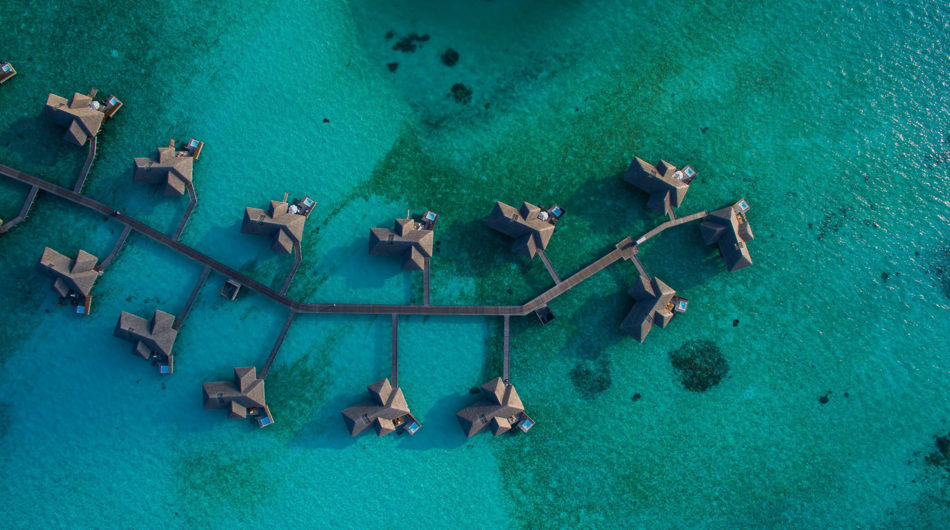Immersive experiences, smart tourism and ‘Fair BNB’ – Alex Marks gives his thoughts on what the tourism industry will look like in a quarter of a century.

Everyone loves holidays, with sun, sea and sangria. Most of us take them for granted.
Tourism is perhaps one of the world’s biggest industries, and yet as we hit the first quarter of the 21st century, our perceived ‘rights’ to travel unabated, the very notion of what it means to be a tourist are being challenged.
Suddenly we’re asked to consider the distribution of wealth, the political situation and the availability of resources at a destination. And all we wanted to do was sit by a pool and read a book.
Over the next couple of decades, there are going to be changes that will have an impact on the tourist industry. Barring a global war or plague, we’ll see income and education levels continue to rise, especially in developing nations, and a growing, ageing population.
In Europe, for example, more than 30% will be older than six years by 2040. And unless your ignorance of such matters is of Trumpian proportions, climate change and sustainability are going to factor pretty heavily, too.
In addition, Generation Z will most likely be ‘familied up’ and millennials’ incomes at peak disposability.
So, what does the year 2044 hold for tourism?
1. Peak experience
Today’s travellers are all about capturing and sharing the experience of their voyages (Ha ha – look at me on the beach while you’re stuck in the office), but, 25 years on our appetites have shifted.
Tourists of the future will be far more discerning. Demand will be for more immersive experiences, with travellers more likely to pick options they consider to be ‘authentic’ – wanting to head off the beaten track and ‘live like a local’, rather than at a remote hotel.
The ‘trophies’ we bring back will be more heavily focused on knowledge and understanding than pretty pictures.
Read more: River predicts: Travel and Tourism in 2044
2. SMART Tourism
Technology use in tourism has shifted from merely enhancing the travel experience to managing the resources needed to make it sustainable by treating the destination as its own eco-system.
Although this practice is already starting to take hold in large cities, we can expect it to be widespread among many more tourist destinations of all sizes.
Data captured from IoTs and mobile communication, and social media from visitors, can be distributed to tourist service providers at destinations, to ensure the efficient allocation of their resources are making it more sustainable and adaptable to the needs and tastes of tourists.
Read more: River Predicts: Photography Trends
3. Need surgery, will travel
Although currently popular among those of us looking for enhanced anatomy at a bargain price, the growth in the ageing population and rising health costs in developed markets mean that travel to a doctor abroad will be an attractive option for many more of us.
By 2044, the quality of medical practitioners and infrastructure in emerging economies has achieved parity, but relative costs remain low. Travelling abroad on a wellness break that includes medical procedures will become as normal as going on a spa break.
4. Cash cows
The world’s urban population is expected to surpass 6 billion by 2044. That’s a lot of people who have probably never seen a cow.
These urban dwellers will be keener than ever to escape and reconnect with nature. As more of the world’s conservation areas come under threat, so tourism becomes a major revenue stream for national parks, conservation bodies and the few remaining farms.
Fair BNB – Renting a room to strangers has shifted from private profiteering to a more community friendly model. Guests, hosts and neighbours now collectively decide how to make the rental process fairer and more sustainable, and reinvest some of the profits back into the community that helped to generate them.
In addition, as our tastes for more ‘real’ experiences have grown, so, too, has the variety of options available to rest our heads when we’re on our travels. Pod hotels and eco capsules, with their low cost and light environmental impact, will become more popular.
People have been exploring new horizons since the year dot. Hopefully we’ve got past the point where visiting a strange land meant subduing the local population and nicking all their resources.
And we are certainly becoming more collectively aware of the impacts – both positive and negative – of tourist activity, which is no bad thing in this increasingly polarised world.
But really we’re all tourists just passing through, some of us making waves and others leaving a footprint. We should take care to tread lightly.



